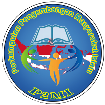Pemberdayaan Ibu Rumah Tangga Kelurahan Mampang Prapatan di Bank Sampah Mekar Sari
(1) Program Studi Pengembangan Masyarakat Islam, UIN Syarif Hidayatullah Jakarta
(2) Program Studi Pengembangan Masyarakat Islam, UIN Syarif Hidayatullah Jakarta
(*) Corresponding Author
Abstract
Keywords
Full Text:
PDFReferences
Aditya, R., Puspitasari, A. R., & Wiyatmoko, A. (2020). Pemberdayaan Kampung Kreasi Warna-warni Lorong Mari oleh PT Pertamina (Persero) RU III Plaju. Islamic Management and Empowerment Journal, 2(1), 17–34. https://doi.org/10.18326/imej.v2i1.17-34
Asteria, D., & Heruman, H. (2016). Bank Sampah Sebagai Alternatif Strategi Pengelolaan Sampah Berbasis Masyarakat di Tasikmalaya. Jurnal Manusia Dan Lingkungan, 23(1), 8.
Azizah, W. N., Ishom, M., & Widianto, E. (2020). Bank Sampah Sebagai Alternatif Strategi Pemberdayaan Masyarakat Waste Bank As An Alternative Community Empowerment Strategy Developing The Thematic Tourism Village " Kampung Putih " In Malang City. Diklus: Jurnal Pendidikan Luar Sekolah, 2(September), 88–100.
Desmawati, L., Rifai, A., & Mulyono, S. E. (2015). Penanggulangan Masyarakat Miskin Kota Rawan Kriminalitas melalui Pemberdayaan Masyarakat di Jalur Pendidikan Nonformal di Kota Semarang. Journal of Nonformal Education, 1(1).
Dukcapil. (2023). Indonesia’s Population and Civil Registration Map. Portal Sistem Informasi Geografis. https://gis.dukcapil.kemendagri.go.id/peta/
Fadli, M. R. (2021). Memahami Desain Metode Penelitian Kualitatif. Humanika, 21(1), 33–54. https://doi.org/10.21831/hum.v21i1.38075
Filmawada, Z., Hardika, & Sucipto. (2018). Peran Kader PKK Sebagai Agen Perubahan Kebersihan Dan Kesehatan Lingkungan Melalui Pendampingan Program Bank Sampah. Jurnal Pendidikan Nonformal Volume 13, No. 2, September 2018, 13(2), 78–84. http://journal2.um.ac.id/index.php/JPN/article/view/6093/3119
Gatta, R., Anggraini, N., Jumadil, Asy’ari, M., Mallagenie, M., Moelier, D. D., Hadijah, & Yahya, A. F. (2022). Transformasi Peran dan Kapasitas Perempuan Rumah Tangga dalam Pengelolaan Sampah Rumah Tangga di Kota Makassar. Jurnal Penyuluhan, 18(2), 265–276.
Mahyudin, R. P., Ummah, N., & Firmansyah, M. (2018). Kajian Faktor Pendorong Keaktifan Organisasi dan Partisipasi Masyarakat Dalam Pengelolaan Bank Sampah Kota Banjarbaru Kalimantan Selatan. Jurnal EnviroScienteae, 14(3), 237–245.
Mardikanto, T., & Soebiato, P. (2013). Pemberdayaan Masyarakat dalam Perspektif Kebijakan Publik. Alfabeta.
Menlhk. (2023). Capaian Kinerja Pengelolaan Sampah. Sistem Informasi Pengelolaan Sampah NAsional. https://sipsn.menlhk.go.id/sipsn/
Prayati, N. M. V., & Kartika, N. (2018). Analisis Pengaruh Program Bank Sampah Terhadap Pendapatan Nasabah Bank Sampah Di Kota Denpasar. E-Jurnal Ekonomi Pembangunan Universitas Udayana, 7(6), 1256–1281.
Sari, I. W., & Pinasti, V. I. S. (2022). Strategi Pokdarwis Dalam Pemberdayaan Masyarakat Melalui Wisata (Studi Kasus Desa Wisata Giyanti, Wonosobo). Dimensia: Jurnal Kajian Sosiologi, 11(2).
Sidharta, V., Arlena, W. M., Wahyono, E., & Wihard, D. (2021). Komunikasi Penyadaran Kritis Warga Perkotaan dalam Pengelolaan Sampah Rumah Tangga. Jurnal Ilmu Komunikasi, 4(2).
Sulistyani, A. T., & Wulandari, Y. (2017). Proses Pemberdayaan Masyarakat Desa Sitimulyo Kecamatan Piyungan Kabupaten Bantul Dalam Pembentukan Kelompok Pengelola Sampah Mandiri (KPSM). Jurnal Pengabdian Kepada Masyarakat (Indonesian Journal of Community Engagement), 2(2), 146. https://doi.org/10.22146/jpkm.27024
Wijaya, H. V., & Husin, D. (2022). Konsep Rumah Susun Mikro di Kampung Tanah Merah, Jakarta Utara. Jurnal Stupa, 4(2).
Wirawan, A., & Yandri, P. (2023). Pengaruh Pelayanan Pengelola Terhadap Kepuasan Nasabah Bank Sampah. (JEMS) Jurnal Entrepreneur Dan Manajemen Sains, 4(1), 16–27.
DOI: 10.24235/empower.v9i1.15010
Article Metrics
Abstract view : 44 timesPDF - 18 times
Refbacks
- There are currently no refbacks.
Copyright (c) 2026 Empower : Jurnal Pengembangan Masyarakat Islam

This work is licensed under a Creative Commons Attribution 4.0 International License.
 Empower : Jurnal Pengembangan Masyarakat Islam
Empower : Jurnal Pengembangan Masyarakat Islam















